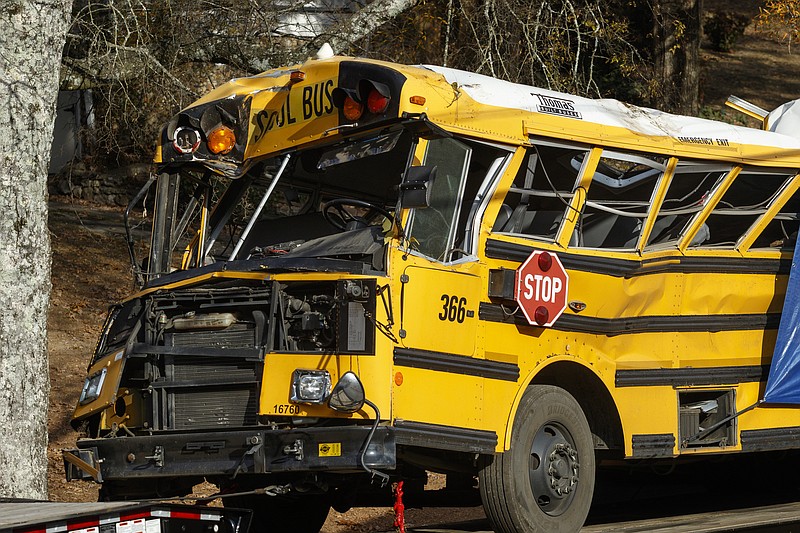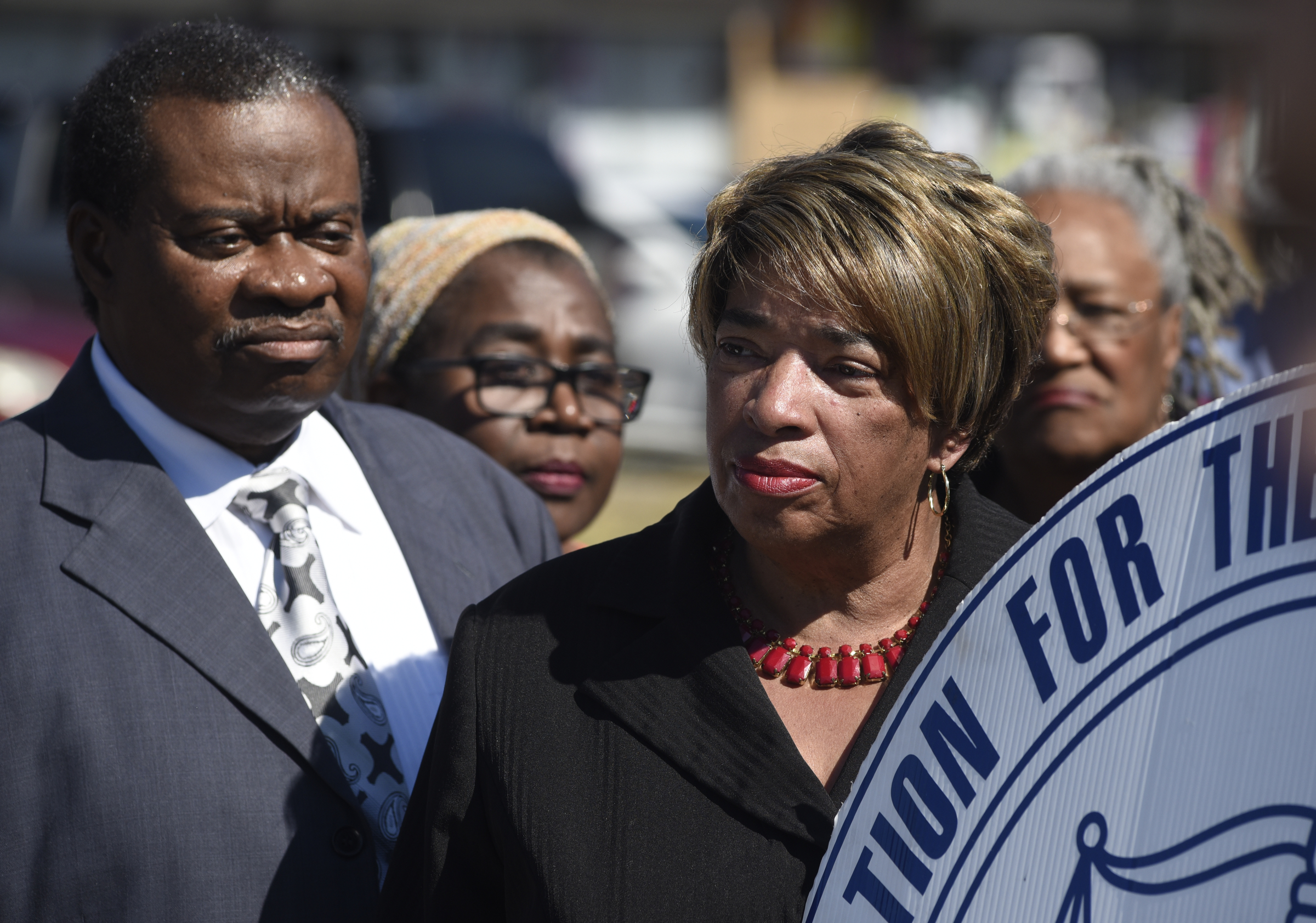NASHVILLE - An opponent of Rep. JoAnne Favors' mandatory school bus seat-belt bill charged today the measure is both too costly on schools and "dangerous" for students.
"I'm just trying to say or just meant to say that this is a very dangerous bill. And I don't mean that in disrespect in any way," Rep. Terri Lynn Weaver, R-Lancaster, told Favors, D-Chattanooga. "It's a bad bill because I think we're going to have more lives lost should this thing pass."
Weaver, chairman of the House Transportation Subcommittee, made her comments during Favors' presentation of the legislation the Education Administration & Planning Committee.

Favors brought the legislation following the Nov. 21 crash of a Hamilton County School bus in Brainerd carrying 37 children. Six Woodmore Elementary School students died while a number of other children were injured.
Describing the legislation as "emotionally driven," Weavers argued school buses are constructed to minimize impacts of crashes and questioned what would happen in the event of an emergency with young children belted in.
"My biggest concern is an incident, God forbid an incident, would happen with 50 to 80 children on a bus and it's upside down and kids are hanging in their seat belts and they can't get out," said Weavers, noting a bus can plunge into water or be engulfed in flames.
She said that while she didn't want to minimize the deadly Chattanooga crash, state figures show that from 2009 until now only 10 Tennessee students and one adult have died in school bus crashes.
Favors replied that the issue of seat belts on school buses is a national issue, pointing to a Beaumont, Texas, crash this month that sent 24 people - including 23 fourth-graders - to hospitals following a crash involving their school bus, a pickup truck and an 18-wheeler.
She cited another crash in Sarasota, Fla., on Tuesday in which seven students were injured, according to news accounts.
"You can always come up with hypothetical cases," Favors told Weaver.
The bill came up at the end of the committee's allotted time. Citing time restraints, Education Administration & Planning Chairman Harry Brooks, R-Knoxville, and other panel members moved the bill to committee's meeting next week.
Asked later about Weavers' comments, Favors said "it is not a bad bill and it is not a dangerous bill. There is scientific proof, evidence, that children's lives have been saved when you have proper restraints and seat belts."
There is "plenty of proof" that safety restraint systems have helped prevent serious injuries in addition to saving lives, Favors said.
During testimony last month in Weaver's panel, two Children's Hospital at Erlanger physicians who were on duty the day of the Woodmore bus crash, testified that seat belts would have helped minimize some students' serious injuries.
Earlier, Weaver said she had allowed the bill to proceed through her subcommittee believing it needed broader discussion. It later passed the full Transportation Committee.
As amended, the bill would require all new purchases of public and private school after July 1, 2019, come equipped with safety restraint systems approved by the National Transportation Safety Board.
After years of federal safety officials arguing that the special compartmentalization on school buses provided students with adequate protection, the NTSB has since gone on record saying that three-point safety systems can provide additional protection.
The NTSB investigated the Chattanooga crash but has not yet issued its report. The driver of the bus, Johnthony Walker, 24, has been indicted six counts of vehicular homicide, four counts of reckless aggravated assault, one count of reckless endangerment, one count of reckless driving and one count of use of a portable electronic device.
Walked was working for Durham School Services, a private company which operates many Hamilton County school buses under contract.

